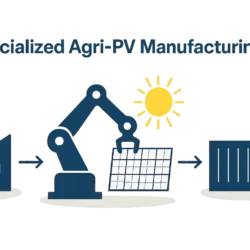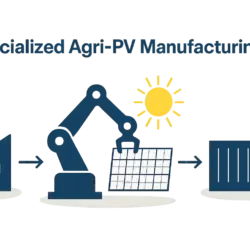France is considering a ban on plug-and-play solar panels, driven primarily by safety concerns over the risk of electric shocks. Officials are worried that the safety standards for these panels are inadequate, as many are imported from China and may not meet France’s stringent electrical safety certifications.
Why France is Concerned About Plug-and-Play Solar
Designed for easy, do-it-yourself setup, plug-and-play solar panels allow people to install them at home without professional help. These panels typically connect directly to a household outlet, making solar power accessible to a much wider audience.
However, this convenience comes with potential safety hazards that have now captured the government’s attention. French officials are particularly concerned that panels imported from China may not meet the country’s strict safety certifications, posing a risk of electric shock to users. These fears have led to discussions about banning the panels altogether, as reported by PVKnowhow.
Affordability vs. Safety Regulations
The popularity of plug-and-play solar panels in France is largely driven by their affordability and simple installation. Available on online platforms like Amazon and Leroy Merlin for less than €300, they connect directly to a household electrical outlet, removing the need for costly professional services.
Despite this attractive price point, the government remains cautious. With many units sourced from China, there are growing questions about their compliance with local electrical safety regulations and whether they meet the standards needed to prevent electric shocks.
The Risks of Bypassing Professional Installation
A key safety concern stems from the difference between DIY and professional solar setups. Traditional solar panels must be installed by a certified technician who safely integrates them with a home’s electrical grid. In contrast, the straightforward setup of plug-and-play panels bypasses this critical expert oversight.
While this accessibility makes solar power available to more people, it also means these systems may not offer the same level of safety as professionally installed ones. This gap in safety is a primary reason the government is now considering a ban.
A Potential Ban to Uphold National Standards
Amidst these growing concerns, France is weighing a ban on plug-and-play solar panels, particularly those imported from China. The potential move is part of a broader effort to ensure all solar products sold in the country meet high safety standards and protect consumers from potential hazards.
While these panels are popular for their user-friendly design, their convenience may come at the cost of safety if the products fail to meet France’s stringent criteria. For further insights, you can refer to France Solar News.
Balancing Accessibility with Consumer Protection
Plug-and-play solar panels have become increasingly popular among homeowners looking to reduce their energy bills and carbon footprint. Their low cost—often under €300 on e-commerce sites—and simple, DIY setup have made them an attractive option for many.
However, the government’s concerns over inadequate safety standards are driving the push for a ban. The primary issue remains the risk of electric shock from panels that fail to meet France’s electrical safety certifications, particularly with imported products.
By considering this ban, France is taking a proactive step to safeguard consumers. This move highlights the nation’s commitment to upholding rigorous safety standards while pursuing safe and sustainable energy solutions for all.




I am surprised that this article does not mention Plug and Play Solar installations in other EU countries such as Germany, where thousands of these products have already been installed by home owners. Equally there appears to be no concern about Global Warming. Also, these systems, with integrated inverters and battery systems have now addressed the concerns mentioned, so the article seems rather out of date.